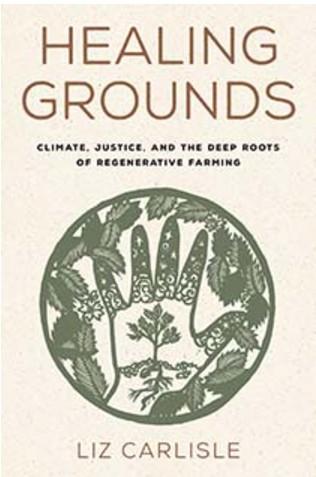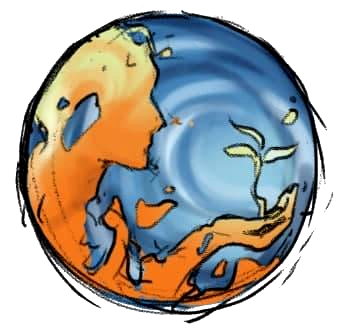Healing Grounds: Climate, Justice, and the Deep Roots of Regenerative Farming

Healing Grounds: Climate, Justice, and the Deep Roots of Regenerative Farming
A deeply woven exploration of the roots of the climate change / agriculture nexus lead author Liz Carlisle into the displaced and indigenous ways of cultivating the land and human wellbeing, which she reports are still alive and regenerating. A compelling read that is relevant for anyone seeking to understand the dynamics of "how we got here" in today's degenerative agricultural systems and the innovators who are taking regenerative and traditional principles and showing how they can not only heal the land, but also communities.
A series of deeply explored cases studies that examine the political and social drivers marked by social injustice and separating people from the land and where they are healing and regenerating.
From the publisher's website: " In Healing Grounds, Liz Carlisle tells the stories of Indigenous, Black, Latinx, and Asian American farmers who are reviving their ancestors’ methods of growing food—techniques long suppressed by the industrial food system. These farmers are restoring native prairies, nurturing beneficial fungi, and enriching soil health. While feeding their communities and revitalizing cultural ties to land, they are steadily stitching ecosystems back together and repairing the natural carbon cycle. This, Carlisle shows, is the true regenerative agriculture – not merely a set of technical tricks for storing CO2 in the ground, but a holistic approach that values diversity in both plants and people.
Cultivating this kind of regenerative farming will require reckoning with our nation’s agricultural history—a history marked by discrimination and displacement. And it will ultimately require dismantling power structures that have blocked many farmers of color from owning land or building wealth.
The task is great, but so is its promise. By coming together to restore these farmlands, we can not only heal our planet, we can heal our communities and ourselves."
By Liz Carlisle, Published by Island Press
